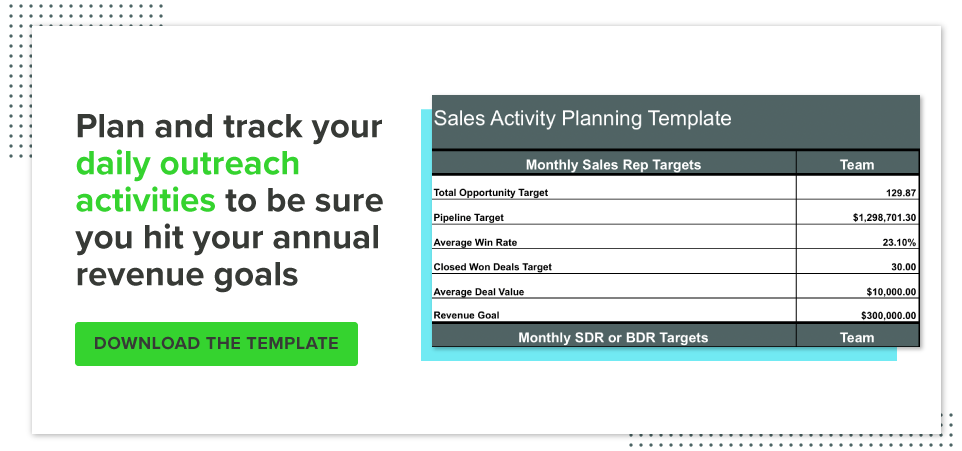
When it comes to sales we can all agree on the same end goal — turning prospects into customers for our business. But when it comes to the methods we use to make that happen, it can be completely different for every sales team member, even at the same company.
There’s no single best way to garner sales success. What works best depends on the individual, and our sales team is no exception. Each member of our sales team brings something different to the table. While they all follow the same basic structure and process, they all come from different backgrounds and experiences. They each have their own preferred methods and strategies for reaching their goals and interacting with clients.
So, we asked members of our sales team to give us their best tips and advice, and we have categorized them into the different stages of our sales process.
Discovery Phase
This is the first step after you have connected with a prospect. This happens during a scheduled meeting, and the goal of the discovery phase is to understand your prospects’ pain points, challenges and objectives, both on a personal level and a company level.
You can use the information gained in this process to make decisions around if the prospect is a good fit for your company and what solutions or products may be a right for their needs.
“Discovery calls are almost like speed dating. You need to take the time to evaluate the prospect's challenges and resources to identify whether or not it makes sense to forward with a sales process. On the other side, your prospect needs to understand whether or not you have the proper solutions for their business challenges. Being able to facilitate that discussion as a two-way street is critical in setting the tone for the entire sales process," says Ben Dinardo.
“Try to do as much research as possible on your prospect and their business before the call. Prospects can tell right away if you haven’t done your due diligence," says Finn Hopkins.
“Don’t go into the discovery phase thinking about what solutions you are going to try to sell to them. This just removes your ability to be an active listener. Take the time to understand their current challenges and business processes. You need to go in with an open mind and desire to understand their greater company goals first," says Beth Abbott.
Solutions Overview
This part of the sales process comes after you’ve discovered what the prospect’s challenges and pain points are. Now, you can present how our company can help solve those. That “solution” usually comes in the form of a demo or, in our case, an assessment.
The goal of this phase is to show your prospect the value you could provide to them as their partner.
“Keep it conversational. Present your ideas and recommendations, but allow your prospect to share their thoughts and build off of your ideas too. They'll feel like you’re collaborating, and you'll learn a lot more from them along the way. Talking through the details and hearing your prospects feedback will help you create a much more tailored and specific solutions recommendation," says Karly Wescott.
“There's an itch to emphasize the greatness of your organization, which you should scratch, but find a way to relate the conversation back to the needs, challenges and goals of the prospect," says Tanner Darwell.
“The assessment phase is an opportunity to educate the prospect and add value. While it is also a good chance to start positioning services that can solve for the gaps you've identified, this is not a sales pitch, and it's important to remember that. This is a critical opportunity to dig deeper into your prospect's challenges and goals. A good assessment presentation builds a lot of trust," says Ben Dinardo.
Proposal Presentation Phase
The proposal or presentation phase is the final phase before signing contracts and agreements. The sales team will formally present the entire plan of action and contract to the client. This phase typically requires a decent amount of time and strategy. It includes things like goals, tactics, milestones and measurement.
“Recommend solutions based on what you think will best solve for the client’s goals and challenges. This is sometimes very different from what the client may think they need or want. This is where the challenger sales methodology comes into play. You need to stand firm in what you truly believe will be the best solution for them, and if that differs from what they were expecting, you need to be able to reframe the recommendations tactfully. There is nothing worse than a rep that tries to sell someone something they don't need, or even worse, a rep that just sells what the prospect wants without considering if it will actually solve for their goals and challenges," says Beth Abbott.
“Present the proposal with urgency in regards to timeline. If they don't sign by X then service delivery dates will not be met. Often times we promise launch dates and the prospect ends up signing later than anticipated which will delay their services launch," says Mitch Panton.
“Be enthusiastic about your company's expertise, your specific solutions and how these solutions will impact the objectives or challenges that your prospect is facing. Be excited about what your company does and what your prospect is trying to do!” says Karly Wescott.
Objection Handling
Regardless of what phase you’re in, sales team members are faced with your prospects’ objections or worries along the way. Those objections could be around your people, your product, their budget or a list of other things.
How you handle those objections can be the foundation of the relationship to come.
“Listen carefully to objections and respond with a question to dig a little deeper. This will allow you to get a better understanding of what the objection really is before responding and also gives you the chance to identify where the objection is really coming from," says Ben Dinardo.
“Don't push too hard, but don't give up too easily. Challenge some of their opinions — but in a respectful and valuable way. They'll probably thank you for it," says Finn Hopkins.
“Clarify with questions. Often times an objection is because of a lack of knowledge or education on a specific topic," says Mitch Panton.
“Be thoughtful — make sure you understand the true objection and the motivation behind it so that you can address it appropriately. Ask questions if you need to so that you understand all of the information. When you provide a response, make sure that it's genuine and thoughtful and it's clear that you understand where your prospect is coming from and you're willing to find a solution together," says Beth Abbott.
The Takeaway
No matter what industry you are in or what product you are selling, the most important thing to remember is that there is no one-size-fits all secret to success in sales. Trial and error is a major part of sales, and it takes time to find what works best for you.
Above all, remember that buyers want a human experience and it is your responsibility to give them an authentic and honest experience throughout their journey.
Weslee Clyde
Weslee Clyde is an inbound marketing strategist at New Breed. She is focused on generating results using inbound methods and is driven by the customer experience. When not at the office, you can find her binging a docu-series on true crime or perfecting her gluten-free baking skills.






